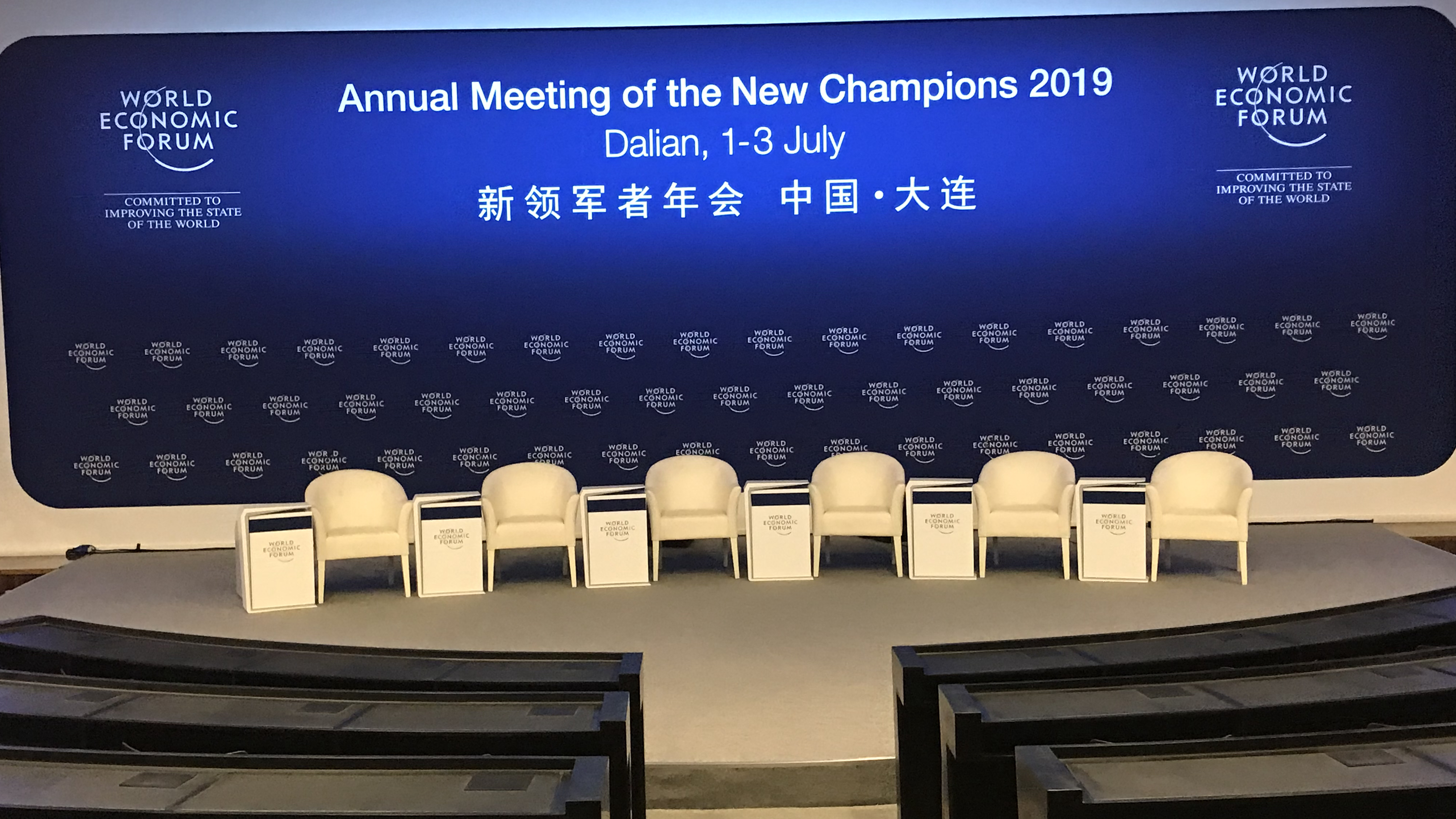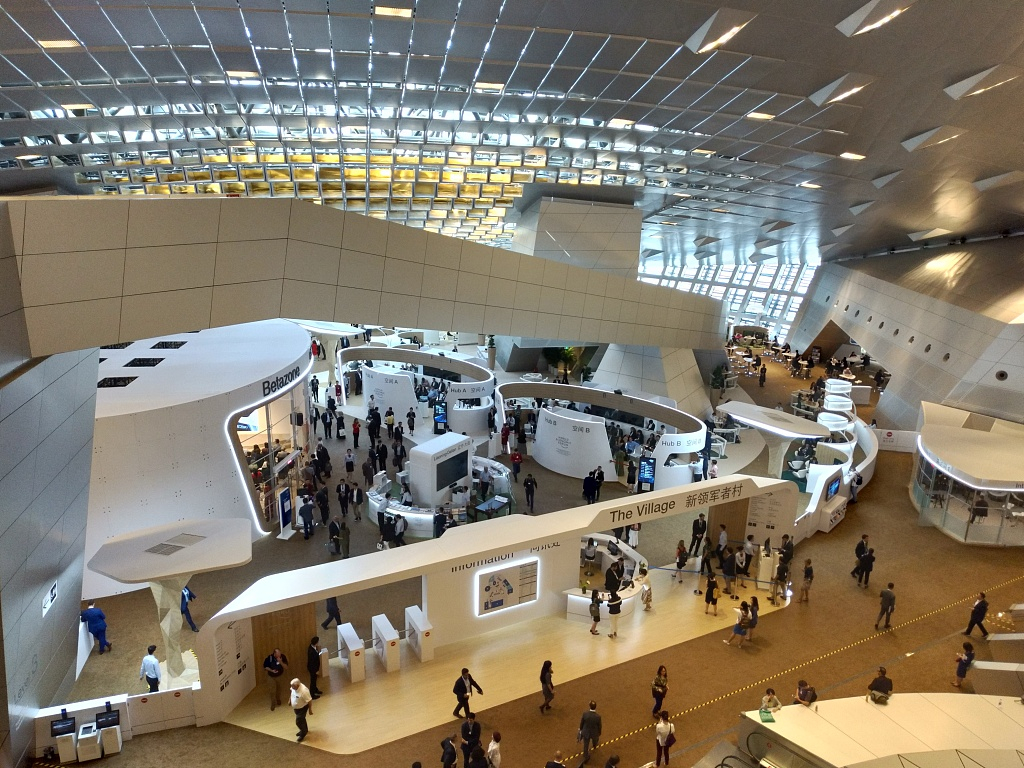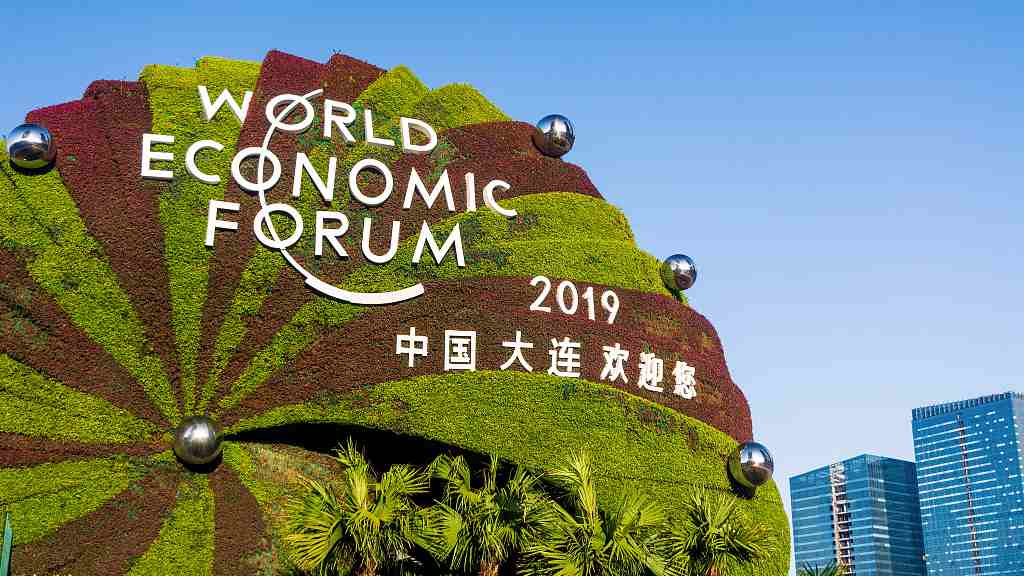

Editor's note: David Lee is a consultant and author based in Beijing who focuses on energy, health, international politics and international development. The article reflects the author's opinions and not necessarily the views of CGTN.
Right on the back of reassuring news out of the G20 meeting that trade talks would resume between China and the United States, China is hosting the Annual Meeting of the New Champions, more popularly known as the Summer Davos, in Dalian, a beautiful port city in its northeast.
This year's Summer Davos reflects on China's latest effort to defeat waves of anti-globalization assaults, most conspicuously led by the champion of "America First."
Continuing the proud tradition since its inception in 2007 as the foremost global gathering on science, technology and innovation, Summer Davos 2019 convenes more than 1,800 global leaders in politics, business, civil society, academia and the arts from over 120 countries and regions around the world.
Official statistics released by the World Economic Forum (WEF) indicate some 300 Summer Davos attendees come from the United States, making the Americans the biggest overseas representation in Dalian, outnumbered only by their Chinese hosts.

The venue of Summer Davos. Dalian, China. July 1, 2019. /VCG Photo
The strong American presence is significant in that it reflects American common sense and offers hope that wisdom instead of bigotry may prevail in the end.
In a similarly positive development, 661 American companies and associations have urged the Trump Administration to abandon tariff hikes and reach a deal with China in a joint letter signed about a fortnight ago.
That said, while recent developments do prove time and again that China is a staunch bastion for the globalization drive and quite the opposite on the part of the Americans, I'd refrain from saying that the United States is at odds with China in advancing shared prosperity for the international community.
At the end of the day, the Trump administration, ridiculed and questioned at home, in Europe and in many other parts, does not reflect the wisdom that's held true over the past seven decades since the end of the Second World War.
Under the fitting theme of "Leadership 4.0: Succeeding in a New Era of Globalization," China works together with the WEF to reinstate globalization in a time of uncertainties and challenges.
The proposed topics cover a wide range of opportunities and challenges, such as How China Shapes the Future of Finance, Reaching the Next Level of Global Cybersecurity, among others.
To put Summer Davos 2019 in perspective, it helps to understand China's consistent support of the globalization drive by working with like-minded colleagues.

The World Economic Forum in Dalian, China. /VCG Photo
At the macro level, Chinese narratives and China-led institutions, such as "a community with a shared future for mankind," the Belt and Road Initiative (BRI), the Asian Infrastructure Investment Bank (AIIB), and the New Development Bank (NDB) inspire the international community.
At the micro level, China's key contribution to the Summer Davos complements many other specific and strategic interventions to benefit the world. Just a couple of days ago, China launched the country office the Global Center on Adaptation in cooperation with the Netherlands and other climate change partners to enhance climate change resilience in China, the region and beyond.
If recent developments are to offer any sign of the foreseeable future, I'd say Summer Davos 2019 provides a new, big boost to China-led efforts to promote global cooperation, a robust trend that is ongoing and gaining momentum.
(If you want to contribute and have specific expertise, please contact us at opinions@cgtn.com)

Copyright © 2018 CGTN. Beijing ICP prepared NO.16065310-3
Copyright © 2018 CGTN. Beijing ICP prepared NO.16065310-3